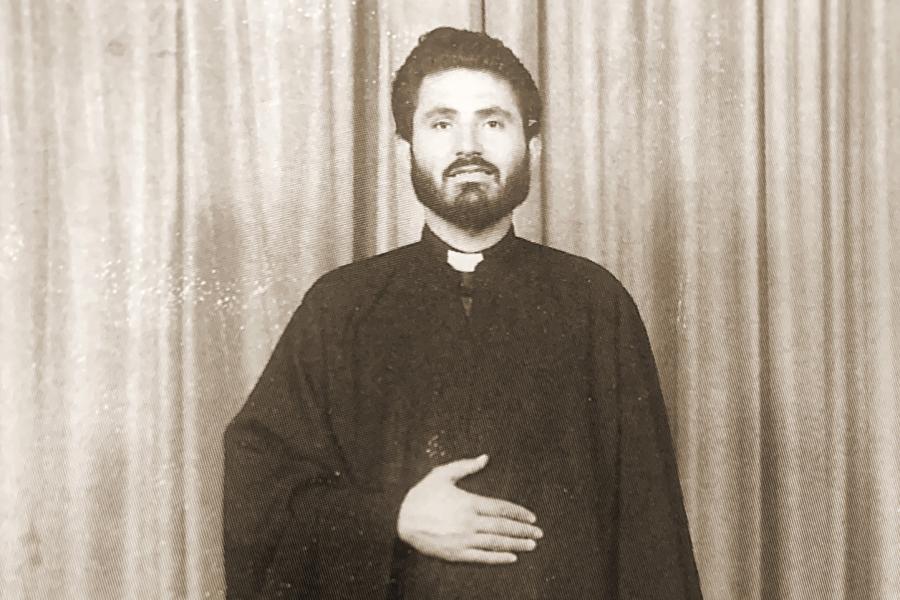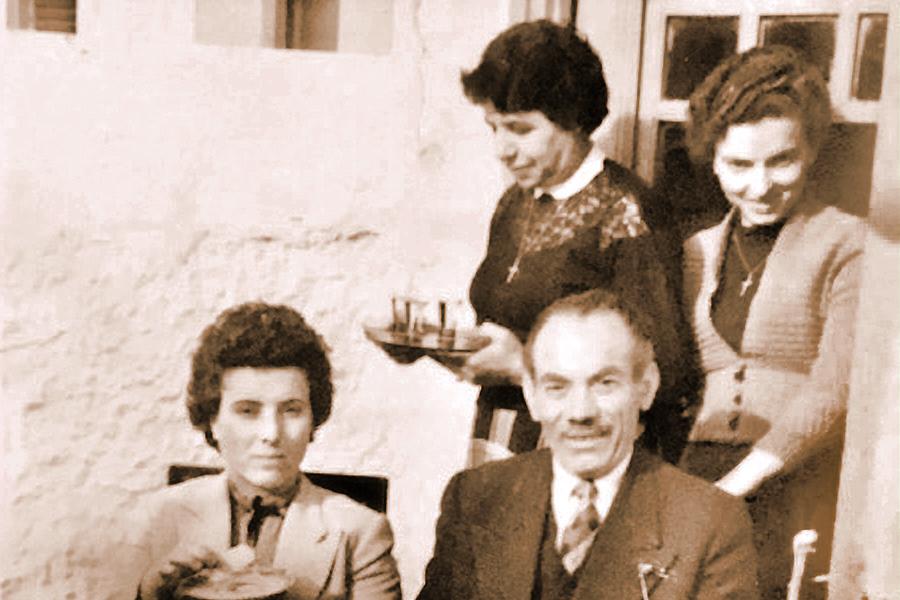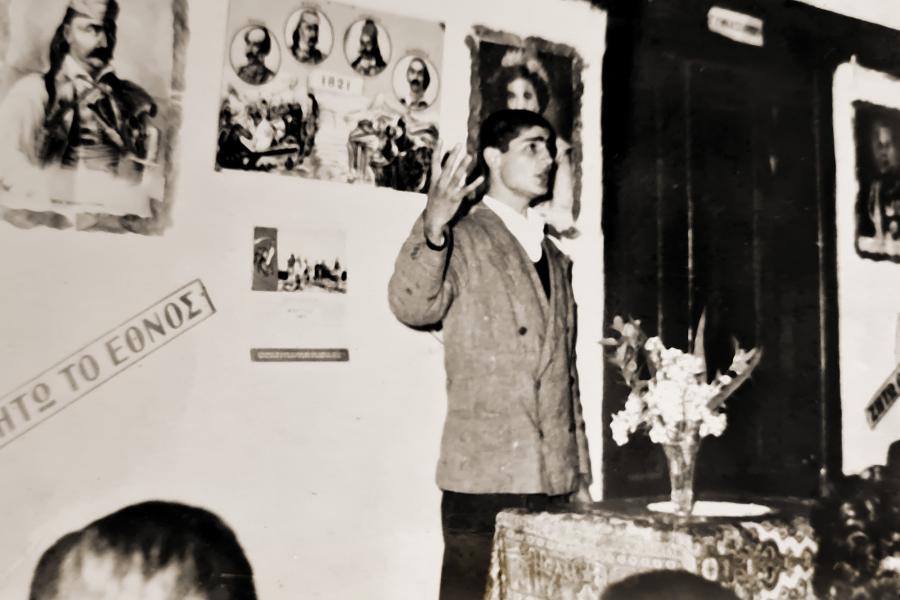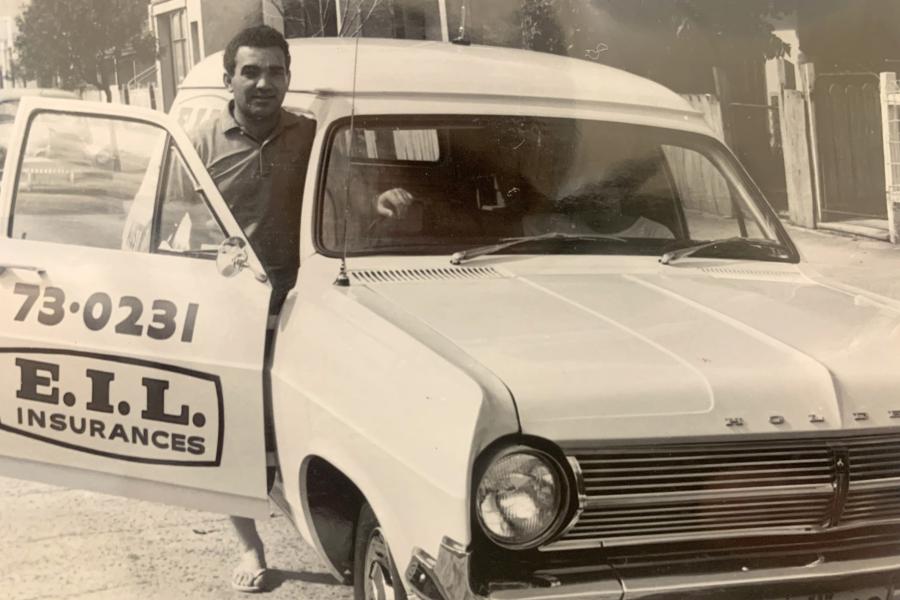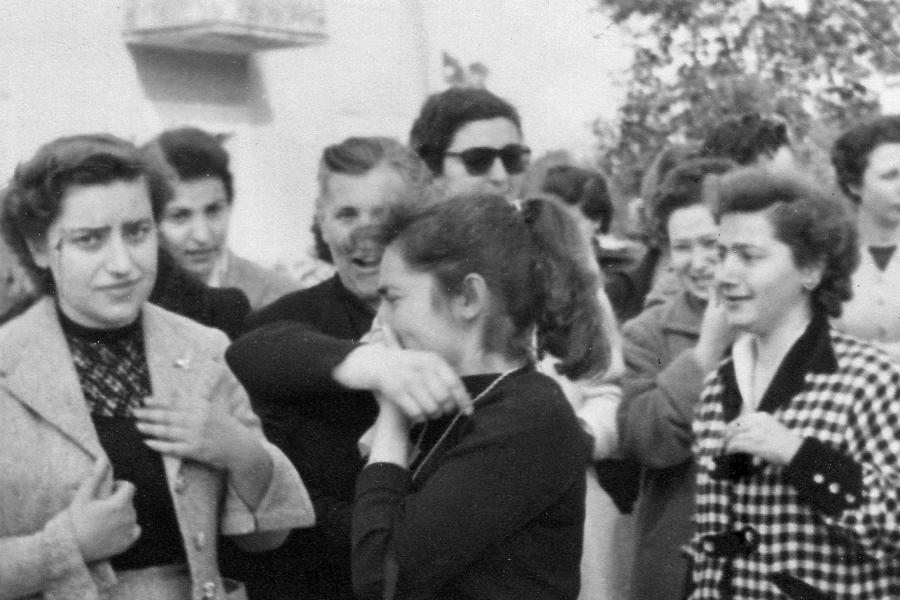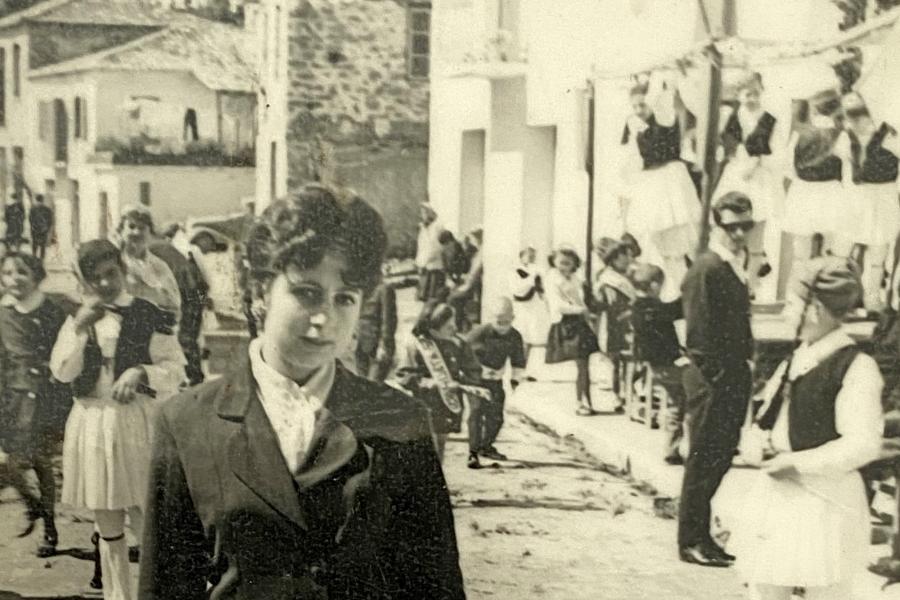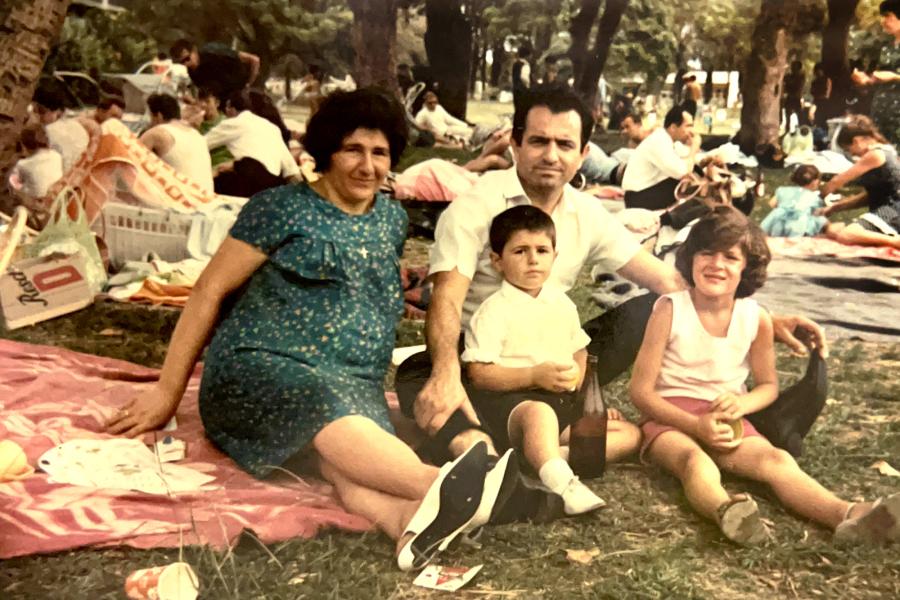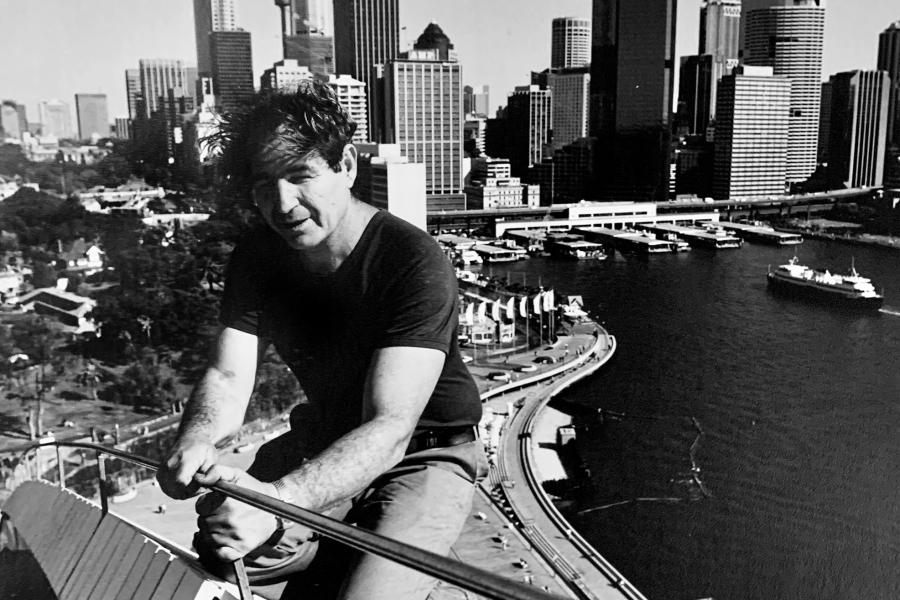

Speaker background
Maria Cotsis was born on the island of Lesvos in 1947 and migrated by ship to Australia in 1968. She has worked in factories, kitchens and shops in Lakemba, Canterbury and Hurstville. Soon after arriving in Sydney, she married at Saints Constantine and Helen Greek Orthodox church in Newtown. Her daughter is NSW Labor MP Sophie Cotsis. Maria has returned to Greece many times, assisting with humanitarian aid during the refugee crisis on Lesvos (2018), for which she was officially commended. For the past 35 years she has lived in Hurstville.
Interview summary
Maria Cotsis discusses her traumatic childhood on Lesvos growing up as an orphan and having to fulfil the role of mother for her siblings. After arriving in Sydney, she lived, initially, with her brother in Newtown, finding work at various factories, including Sunbeam and Glomesh. She recalls her resistance to her brother’s persistent efforts to arrange a marriage and the pressure exerted by other family members. She speaks of her unrequited dreams and the difficulties encountered integrating into Australian society. In the interview, Maria also recounts the care afforded to her family by the residents of the multicultural suburb of Canterbury as well as her pride in the achievements of her children.
Interview highlights
highlight
Tell us something about your family and your place of birth?
We were five children. We were five. When I turned 8, I lost my mother. She died. Then, I was left at home with an older brother, who was 13, there was a five-year-old and a four-year-old, as well as a three-month-old baby. My father tried hard. He was a butcher. We had fields. […] But he couldn’t help us. He had to be the breadwinner, so we could at least eat. I held the family together. […]
Timecode 00:35 - 01:41
highlight
I tried going to school, it was compulsory, but in 3rd class I had to mind the youngest. The teacher who lived nearby would shout: “Maria, you must come to school!” But the baby was just 3 months old. Who would have held him? There was no one. Fortunately, the teachers were lenient since they loved me. I tried to do what I could with help, I was lucky to have some help from a neighbour, and from my grandmother and an aunt, but they didn’t have the strength. We lived in poverty then. I tried to look after the baby but at 9 months it died. I didn’t know! I didn’t know? I didn’t know a thing, as I was a child myself. […] The baby died from the lack of a mother, love, and affection. If you don’t have a mother, everything ends.
Timecode 02:01 - 03:25
highlight
Maria explains the circumstances in which she started to learn English.
Maria: Those [terrible] jobs that I worked in Newtown and so on, I had to work there because I did not know English. I did not know English. I used what words I managed to find.
Eleni: How did you slowly-slowly acquire the language?
Maria: I learnt the language when we bought a shop, because I had always worked with Greeks, in the factories…
Eleni: Where was the shop?
Maria: Our first take-away shop in Lakemba. It was so good there. The crowds would come. The Australians spoke English, English…
Eleni: What kinds of foods did you cook for them?
Maria: I made potato fritters. Cheese pies. Despite having two small children, I managed such things. I was sought after. I mean, the shop was profitable.
Timecode 38:01 - 38:48
highlight
You experienced major trauma growing up?
I experienced difficulties. When I talk with my sister, she cries. Out of sorrow she cries. And she says, ‘We never had a mother! […] no one hugged us, Maria.' And I say ‘Don’t cry, because then I will cry’,
Eleni: But now you have children, and grandchildren.
Maria: Yes. Yes. But still, the old things don’t leave you. It hurts! […]
Timecode 48:30 - 49:05
